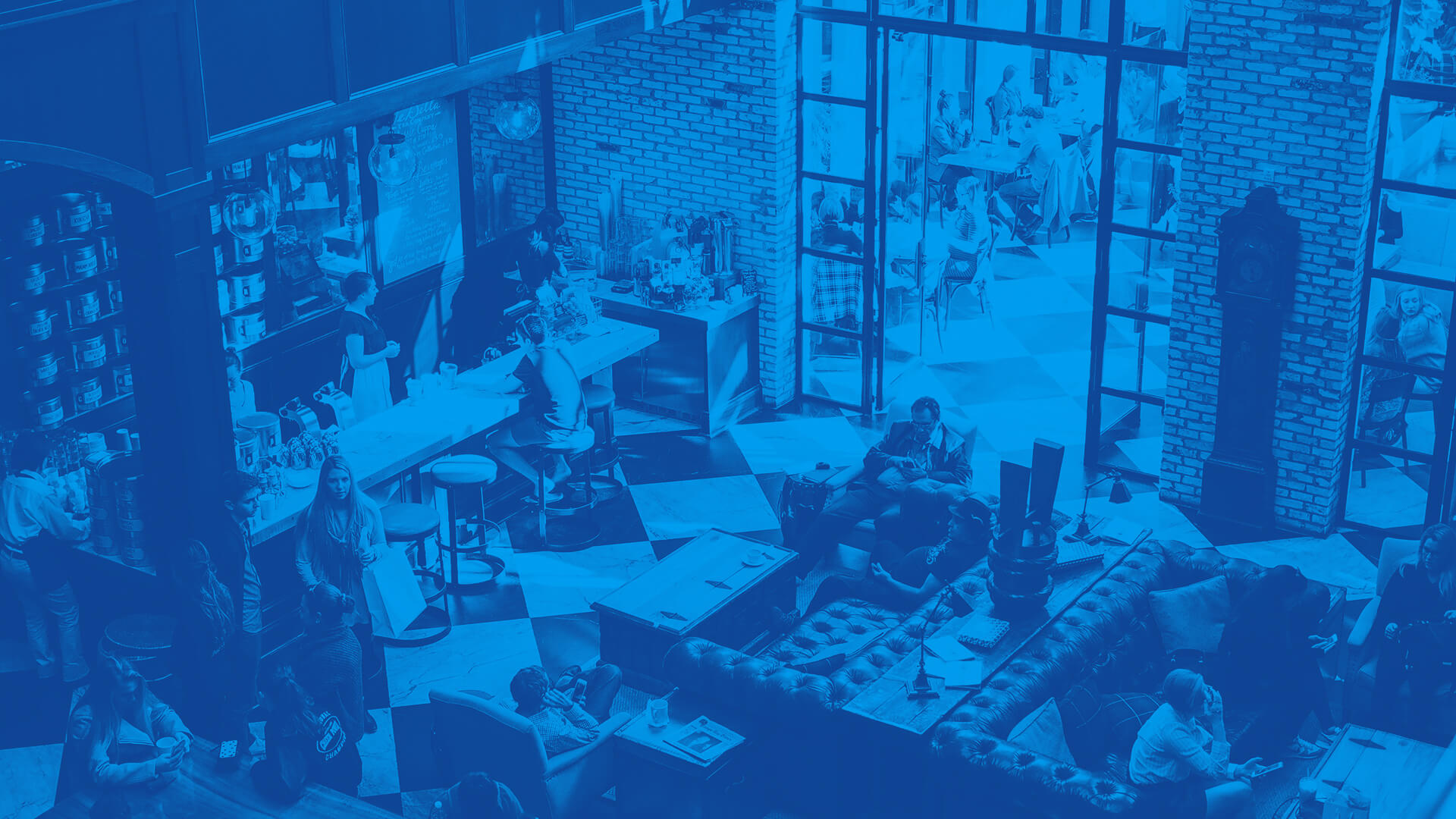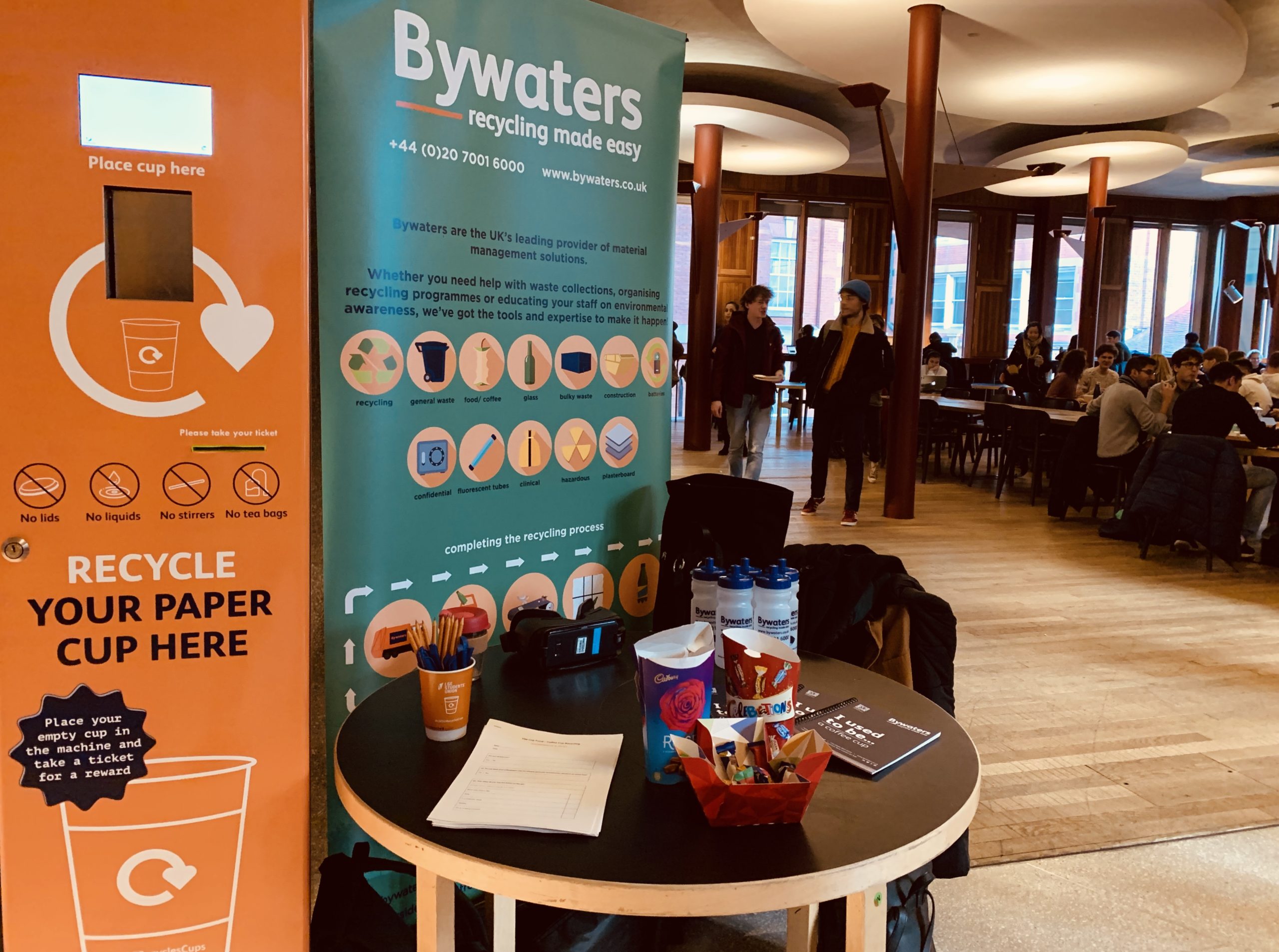We’re Bywaters, a sustainability and waste management company based in East London. In this guest post, we’re talking about our project with Frugalpac, and how together we’re working to make London’s universities more sustainable.
At Bywaters, our clients expect us to provide the most sustainable and environmentally friendly solutions possible. So, when we launched our coffee cup recycling initiative across London university campuses early this year, we were faced with two major challenges. Firstly, to get students and staff to start segregating their coffee cups from general waste, so that we could recycle them without contamination. Secondly, to make sure that the coffee cups themselves were as recyclable and sustainable as they could be.
Point one, we could handle ourselves. Point two is where we turned to sustainable packaging manufacturer Frugalpac.
The Coffee Cup Recycling Project
The funding for this initiative came in the form of a grant from The Cup Fund, which we used to purchase;
• Three fully bespoke reverse vending machines
• Bespoke coffee cup-shaped recycling bins for each site
• Discounts on hot drinks for those recycling their cups
• Frugalpac’s specialist sustainable coffee cups for use within retail units on campus.
The reverse vending machines – which are currently onsite at the London School of Economics and Queen Mary University – incentivise segregation of coffee cups by providing discounts and other rewards for students who use them correctly. The aim is to build positive recycling habits in staff and students through this reward mechanism, while ensuring that we receive a pure and uncontaminated stream of coffee cups that we can then recycle. These machines accept all coffee cups, most importantly Frugalpac’s sustainable Frugal Cups, which are now in use across LSE and Queen Mary University.
Why Frugal Cup?
As a recycling company, we see tonnes of coffee cups enter our facility as part of general waste and mixed recycling. The sad fact of the matter is that many of these cups are not able to be recycled, and are instead incinerated to provide energy for the National Grid. As recently as 2018, 99.75% of coffee cups in the UK were not being recycled – meaning around 2.5 billion coffee cups were being thrown away with general waste each year.
Worse still, normal disposable cups are made of virgin – i.e. new and unrecycled – paper, lined with plastic to keep the structure rigid when liquid is poured in. These two materials are bound together, and, as paper and plastic are recycled through different methods, cannot be recycled in this state. It takes a specialist facility to separate the plastic element from the paper element, and these facilities can only recycle disposable cups when they are segregated from all other waste.
Frugal Cups, on the other hand, are made from 96% recycled paper, making the lifecycle of the cup far less energy and water intensive than standard cups made from virgin materials. This has the double benefit of making them much more environmentally friendly to produce and much easier to recycle, offering a far more sustainable alternative to normal disposable coffee cups across the university campuses. With the infrastructure in place to recycle coffee cups, all we needed were responsibly-sourced and sustainable cups in the business to get going. The Frugal Cup was perfect for our project, and they were even able to provide bespoke cups for us, complete with project branding.
A Sustainable Success
In partnership with Frugalpac, we have been able to make a real difference. The project is now fully implemented across LSE and Queen Mary University, with students using sustainably manufactured cups for coffee, and recycling them properly once they are finished. In the two months since the project was officially launched, the initiative has resulted in thousands of coffee cups being recycled, which will only increase as time goes on.

